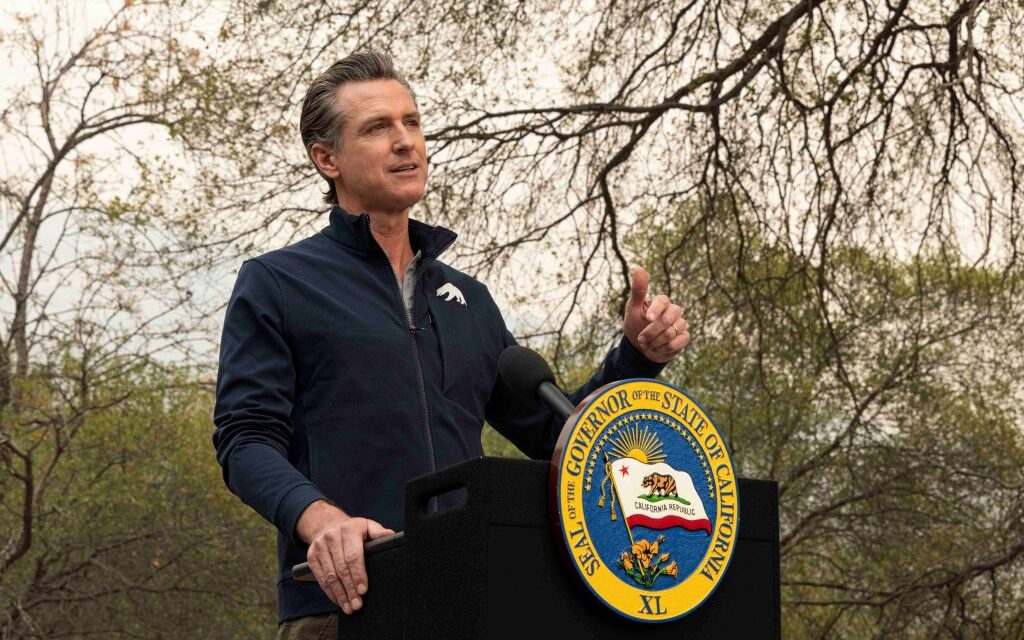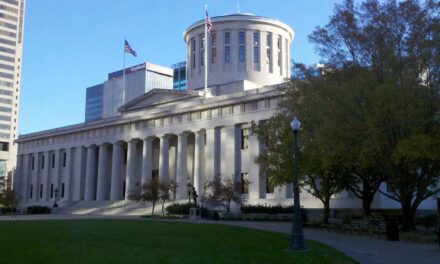
 Gov. Gavin Newsom. (Photo courtesy of the Governor’s office)
Gov. Gavin Newsom. (Photo courtesy of the Governor’s office)
“You can please some of the people all of the time, you can please all of the people some of the time, but you can’t please all of the people all of the time.” Although penned by a poet, it may be more apropos for politics — it was famously co-opted by Abraham Lincoln, after all. In 2025, Governor Gavin Newsom would be well served to take a page from Lincoln’s book when it comes to his own sustainability policies in California.
With less than two years left in his administration, Newsom is in a difficult position as he tries to solve existing challenges while carving out a lasting legacy of environmental stewardship and signature accomplishments. Yet despite his self-proclaimed commitment to the environment, the governor has drawn some criticism from climate groups that oppose several of his much-needed water infrastructure projects.
Thankfully, Newsom’s predicament also provides an opportunity to create a meaningful legacy during his final years in office by developing a roadmap for substantive climate policies that balance economic prosperity and quality of life alongside environmental protections.
To secure his legacy as a positive agent of change, Newsom should champion commonsense policies that bridge the disconnect between California’s reputation as a national environmental leader and the reality that millions of Golden State residents still lack access to safe, clean drinking water five years into his term.
For example, the California State Water Resources Control Board’s 2024 Drinking Water Needs Assessment found 385 failing public water systems and 613 at-risk public water systems. Roughly 56% of the failing public water systems serve disadvantaged California communities and 67% serve majority communities of color.
‘); ]]>
Their health is at risk, as the board found that many of the water systems either failed to provide water “which is at all times pure, wholesome, and potable,” or violated drinking water standards.
Five-year funding requirements for the failing and at-risk public water systems is estimated at $6.6 billion. This is a steep price tag given the state’s budget shortfalls, but further delays are simply unacceptable.
Despite the lack of action to address failing water systems, lawmakers across the state have instead focused on plastic water bottle bans that effectively cut off communities suffering from water quality challenges from a crucial source of safe, healthy drinking water for their families. These poorly conceived bans fail to consider how low-income communities and communities of color are disproportionately impacted by water quality and infrastructure challenges.
To his credit, Governor Newsom’s administration is ramping up its efforts to tackle these challenges. All told, 395 projects covering areas from recharging and protecting groundwater to improving stormwater management to expanding access to safe drinking water have received funding.
To express his commitment to a comprehensive water policy, Newsom has chosen to fight for two very controversial water infrastructure projects — the Sites Reservoir and the Delta Tunnel Project. The former will capture water during California’s wet seasons and store it for use during the drier months, while the latter improves the state’s ability to capture and move more water. Despite these benefits, environmentalist groups argue that the projects could actually lead to higher greenhouse gas emissions and energy consumption, exacerbating the state’s climate crisis.
A balanced policy approach is critical, as it ensures that when developing policies and regulations, like water quality and infrastructure, different viewpoints, interests, and potential impacts are given equal consideration. This ultimately leads to more equitable and effective outcomes for everyone.
Our elected officials have strayed from this idea, letting ideology and politics guide their policymaking leaving communities of color and other vulnerable Californians to bear the burden of any unintended consequences. As he finishes his final term as governor, Newsom can pave the way back to balanced environmental policies, burnishing his climate credentials— and his legacy.
Edwin A. Lombard III is the executive director of Californians for Smarter Sustainability. He previously led the California African American Chamber of Commerce and is a U.S. Navy veteran.
‘); ]]>




